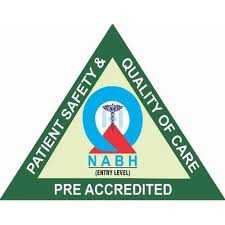
As we gracefully journey through life, our bodies undergo various changes, and our eyes are no exception. Aging is a natural process that can impact our vision and overall eye health. Understanding the changes that occur in our eyes as we enter our 40s, progress through our 50s, and venture beyond is crucial for maintaining optimal visual well-being. In this comprehensive guide, we will explore the common age-related changes in eye health, discuss potential issues that may arise, and offer practical tips on how to care for your eyes as the years go by.
The 40s: Navigating the Onset of Presbyopia
Once we hit our 40s, a common vision change awaits us – presbyopia. This age-related condition affects our ability to focus on close objects, making activities like reading and using a computer more challenging. Presbyopia occurs as the natural lens in the eye becomes less flexible, making it difficult to adjust for near vision.
Presbyopia can often be managed with reading glasses or multifocal lenses. Regular eye exams become increasingly important during this stage of life to monitor not only presbyopia but also to check for other potential issues, such as glaucoma and age-related macular degeneration (AMD).
Moreover, maintaining a healthy lifestyle plays a significant role in supporting eye health in your 40s. Proper nutrition, including foods rich in vitamins A, C, and E, as well as omega-3 fatty acids, can contribute to overall eye wellness. Additionally, adopting habits like wearing sunglasses to protect against harmful UV rays and staying hydrated can positively impact your vision.
The 50s: Addressing Common Age-Related Conditions
As we transition into our 50s, the risk of developing certain eye conditions becomes more pronounced. Cataracts, a clouding of the eye’s natural lens, often become more noticeable during this decade. Symptoms may include blurred vision, sensitivity to light, and difficulty seeing at night. Cataract surgery, a common and highly successful procedure, can help restore clear vision.
Regular eye exams continue to be crucial in your 50s, as they allow eye care professionals to monitor for conditions like glaucoma, a disease that damages the optic nerve and can lead to vision loss. Open-angle glaucoma, the most common form, often has no early symptoms, emphasizing the importance of routine eye check-ups for early detection and management.
In addition to maintaining healthy habits established in the 40s, individuals in their 50s should pay extra attention to managing conditions such as diabetes and hypertension, as these can significantly impact eye health. Elevated blood sugar and blood pressure levels can contribute to diabetic retinopathy and hypertensive retinopathy, respectively, both of which can lead to vision impairment if not managed appropriately.
Beyond the 50s: Nurturing Ocular Wellness
As we venture beyond the 50s, a proactive approach to eye health becomes even more critical. Regular eye examinations remain essential, serving as a proactive measure against potential issues that may arise with age. The risk of developing age-related macular degeneration (AMD) increases, particularly in individuals over 60. AMD affects the macula, the central part of the retina, leading to a loss of central vision.
Continued adherence to a nutrient-rich diet, with a focus on antioxidants and vitamins, supports ocular health in your later years. Omega-3 fatty acids, found in fish and flaxseed, are particularly beneficial for maintaining the structural integrity of the eye.
Moreover, lifestyle factors, such as avoiding smoking and managing stress, can contribute to overall eye wellness. Smoking is a known risk factor for AMD and cataracts, emphasizing the importance of quitting this habit for the sake of your eye health.
In conclusion, understanding the changes that occur in our eyes as we age is essential for preserving and maintaining optimal vision. Regular eye examinations, a healthy lifestyle, and proactive management of underlying health conditions are key components of a comprehensive approach to eye health in your 40s, 50s, and beyond. By embracing these practices, you can embark on a journey towards maintaining clear vision and ocular well-being throughout the various stages of life.
Vision Plus Eye Centre emerges as a beacon of excellence. Through their commitment to personalized care, proactive management of age-related conditions, and a holistic approach to eye health, Vision Plus stands as a reliable partner in ensuring clear vision and ocular well-being throughout the various stages of life. In the intricate tapestry of aging, Vision Plus remains dedicated to illuminating the path towards lasting eye health.
Call Now at 0120-2481481, 2480480 +91 88003 13134 or email us at info@visionplus.net.in.
Book an Online Appointment: https://visionplus.net.in/contact/
About Author Bio: Dr. Ritu Aurora, M.S., is a highly skilled specialist in Cataract & Refractive Surgeon. With expertise in these areas, she is dedicated to providing comprehensive eye care and ensuring the well-being of her patients. Dr. Aurora brings a wealth of knowledge and experience to her practice.Top of Form

